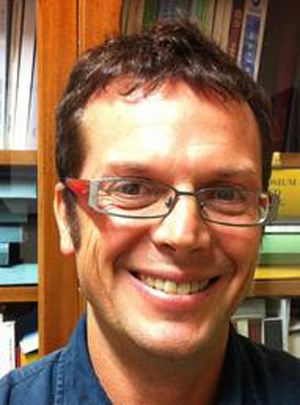Professor of Molecular Thermodynamics (part-time)

Biography
A Chemical Engineer by training, Prof. Striolo earned his Ph.D. from the University of Padova, Italy, in 2002, under the co-supervision of Prof. Alberto Bertucco and Prof. John Prausnitz, University of California, Berkeley. After his post-doctoral research at North Carolina State University (with Prof. Keith Gubbins) and Vanderbilt University (with Prof. Peter Cummings), in 2005 he joined the University of Oklahoma (OU) as an Assistant Professor. Prof. Striolo spent sabbaticals at Princeton University and at Lawrence Berkeley National Laboratory, and in 2013 he joined University College London (UCL) as Professor of Molecular Thermodynamics. At UCL, he directed the MSc in Global Management of Natural Resources until 2021, when he accepted the Asahi Glass Chair in Chemical Engineering at OU. He is now part time at UCL.
Teaching Summary
Prof. Striolo directed the MSc in Global Management of Natural Resources since its inception to 2021.
Research Summary
Our research builds on fundamental thermodynamics and transport knowledge, acquired in the Chemical Engineering curriculum. We synergistically combine analytical theory and advanced simulation techniques (ranging in scale from the atomic, molecular, to the coarse-grained levels) with state-of-the-art experimental tools to advance our understanding of molecular-level phenomena, particularly those occurring at interfaces. Our lab has access to massive computational environments (Legion, NERSC, OSCER, and others) and has concentrated a sizable cluster of apparatuses for interfacial experiments (AFM, QCM-D, etc.) When experimental capabilities fall outside our group’s expertise, we rely on talented collaborators for achieving the synergism between experiments and theory we believe is necessary to secure scientific progress in all technological areas of current societal importance (energy production and storage, sustainable development, environmental preservation and remediation, drug design and delivery, etc.)
Our research is application-oriented. Our motto is ‘Rerum Cognoscere Causas’: Once we understand the molecular-level phenomena that dictate macroscopic outcomes, we can design materials and processes to optimize the application of interest. Applications of current interest include molecular separations, hydraulic fracturing, innovative manufacturing technologies, and particulate systems.
Education
2002
Chemical Engineering, University of Padova
1998
MEng, Chemical Engineering, University of Padova
Professional Affiliations
- FIChemE – fellow of IChemE
- CSci – chartered scientist
 Close
Close

